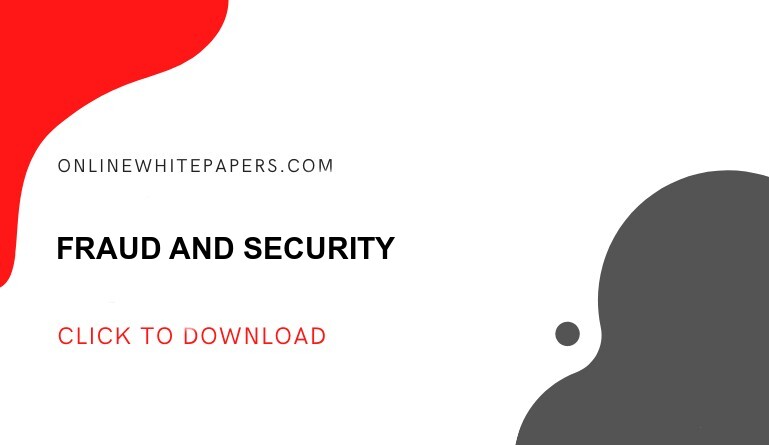Security is an essential part of everything in the frail world of tomorrow, whether you are living in the real or the digital world. Cybercriminals, especially, have become more proactive than ever; they will try to find loopholes in digital transactions to scam both businesses and customers.
81% of organizations in the United States alone were the target of some kind of payment fraud attack(1) in 2019. In this ever-growing fast-paced world, it has become imperative that we have some sort of payment security to keep business transactions safe.
Here is everything you need to know about payment security:
What is Payment Security?
Digital payment, whether it be online or through dedicated payment machines, has become an integral part of our daily lives. There are more than 7.9 million online retailers in the world, all of which indicate how security for various payments has become more important than ever.
Payment security refers to providing rules, regulations, and security measures to protect a customer or partner’s privacy, data, and transactions. In other words, payment security refers to the protection of a customer, vendor, or client’s transactions.
( Also Read: Payment Gateway – A Complete Guide )
Why is Payment Security So Important?
The reason why so many businesses focus so hard on payment security is that it has significant importance in any economy. Any business itself is a small country, where they must control the flow of cash and ensure that the business is making the most profit with the smallest risk margin.
Payment security provides so many benefits. Here are a few reasons why payment security is so important:
-
Improve conduct of a trade
All businesses conduct their trade because they have a level of trust with their customers and vendors. No customer wants to deal with a business they are unsure of. Vendors will always stay away from shady businesses or businesses where liabilities are too high.
By implementing a good payment security system, you are considering improving the conduct of trade for your business.
-
Get better trade offers
There are a lot of advantages to improving your relationship with your vendor/supplier(s). If you have a payment security system, you will automatically be bumped a few priorities up on many vendors’ lists. This is because at the end of the day, all vendors want is to make money.
By showing vendors that your business has a proper payment security system, you will automatically be eligible to receive more enticing business offers & deals.
-
Improve stability of the financial system
In the long run, all businesses are good for the financial system – if they pay the correct taxes and follow all rules. This is because businesses help circulate the flow of money and increase jobs in the market.
When there is payment security, businesses ensue and there is a proper check & balance on everything. Since there are fewer problems that are likely to occur in this system, the business can focus more on growing bigger and making more profit, which, in turn, increases the flow of money and increases the stability of the financial system. Lesser chances of businesses and their customers getting scammed also add to this stability.
What Types of Payment Security Methods Are There?
Only 27.9% of organizations are PCI DSS compliant(2). There are a few types of payment security methods that you should know about:
-
Tokenization
Tokenization is the process where sensitive payment information is replaced promptly with a randomly generated string of characters. This string of characters, or tokens, must be linked to a certain customer so it can work properly. You have both a public and private key for this purpose. Tokenization helps reduce the risk of a data breach because the private key is almost impossible to impersonate.
-
3D secure
Another very popular technique and a good alternate to tokenization is the use of an additional security layer where three domains are used for each transaction. These three domains are a bank, technology that does the transaction & the issuing bank.
This system helps decrease the number of fraudulent attempts but is slow and the whole process is tedious to automate.
-
AVS (Address Verification Service)
AVS or Address Verification Service is a security measure where the tool verifies the billing address provided by the cardholder. This cross-checking of the address & verifying that the information is correct and concise help during a credit card transaction.
If the information is correct, the merchant will receive a positive message, which then allows the business to move further with the billing process. If the information isn’t correct, the merchant will still receive a message, although this time it will be a negative message indicating that the payment has failed.
-
Fraud Screening Tools
There are dedicated fraud screening tools available in the market that help sieve through and figure out when potential fraud is going to happen. Although previous tools used to use a reputation-based system, modern fraud screening tools even use Machine Learning and AI-based algorithms(3).
These fraud screening tools are useful, but they aren’t perfect. It would be a better-case idea to combine this with a different payment security technique to ensure maximum security.
How Does a Business Comply With The Current Payment Security Standards?
There is a standard for each business that they have to uphold when trying to ensure they have proper payment security. This standard is maintained by the Payment Card Industry Security Standards Council(4) (PCI SSC). VISA, MasterCard, American Express, Discover, and NCH are the five major payment brand members of this council.
Standards for PCI SSC
There are 4 standards for PCI SSC. Here is a small breakdown of each level, and how you would reach a higher level:
- Level 4 – Merchants must have some transactions, at least somewhere below 20,000 transactions annually.
- Level 3 – Merchants should have at least 20,000 transactions, up to a million per year.
- Level 2 – Merchants should have anywhere between 1 to 6 million transactions per annum.
- Level 1 – Merchants or businesses involved must process over 6 million card transactions per year. This is the highest level.
How to reach PCI SSC
PCI SSC itself has shared a few standards that it must follow if they are to think about compliance. Here is a small 3-step process that small businesses can use:
- Assess – Be able to thoroughly conduct an inventory check of all systems & ensure the security of sensitive information. The lower the amount of information stored on the network, the easier it is to become compliant with the standards.
- Remediate – Ensure that swift action is taken against all potential vulnerabilities and issues with the payment process. Try to reduce the amount of information that the company stores.
- Report – Be ready to report all payment-related problems and queries to the acquiring banks and card networks the business is affiliated with. Similarly, once you are done with fixing any but all issues, you must file an attestation of compliance form that contains all information needed by both the aforementioned banks and card networks.
Final Thought
We hope that this article on payment security has helped you understand everything you may need to know about why a good security system is important for a business and why you should implement one as well.






